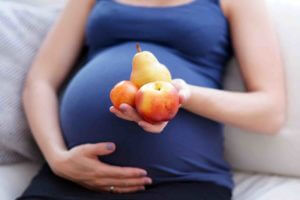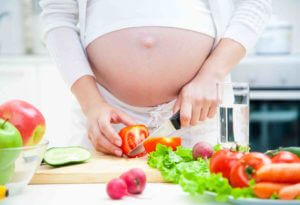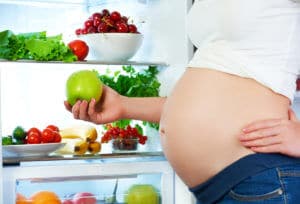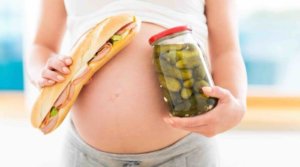You’ve probably heard that it’s better to avoid some of the normal, everyday foods during pregnancy. Liver sausage can be one of the foods that should not be eaten during pregnancy under certain circumstances. However, this has only marginally to do with liverwurst and much more to do with hygiene during pregnancy. Both are the subject of this article, after which you will see more clearly not only the subject of liverwurst in pregnancy.
Table of contents
Liverwurst In Pregnancy: Many Uncertainties
On the Internet there are many guides, especially many for people like pregnant women who need quick advice in a new situation. This would actually be very pleasing if many of these guidebooks did not place more emphasis on the right keywords for the search engine than on careful, cost-intensive research. The “Liverwurst in Pregnancy” has become a victim of this “fast writing”: Many a guidebook strongly advises against eating liverwurst during pregnancy. The next guidebook presents liverwurst in pregnancy as completely harmless. Since liverwurst in pregnancy is one of the typical foods that pregnant women quite often develop a real ravenous appetite for, it is time to shed some light on the subject. So much already in advance: Exactly the middle is correct. Liver sausage is permitted and healthy during pregnancy, but should not be consumed in masses. The reasons for this lie in the nutrients found in liverwurst:
The Liver Sausage And Vitamin A
When you are pregnant, you are providing for your baby through your diet. This is not called“eating for two“, but it does cause a significant increase in requirements, especially with regard to certain nutrients. The German Society for Nutrition recommends a slightly higher vitamin A dose of 1.1 mg per day for pregnant women, which is also recommended for adolescents in the late growth stage between 15 and 19 years of age. But, and this is important, this slightly increased vitamin A dose is only recommended from the 4th month of pregnancy. This is because under no circumstances should too much vitamin A be supplied, especially in the early stages of pregnancy, because this could even lead to malformations in the child (which will be discussed in more detail below under “Overdosage”).
The Vitamin A Content Of Liver Sausage
Vitamin A is stored in the liver, both in humans and animals, which is why liver sausage contains more vitamin A than other sausages that do not contain liver. But liver sausage is made not only from liver, but mainly from meat. Depending on the recipe, meat from domestic pig is most often used, but also meat from veal, beef and poultry. Liver is included as a flavor-defining ingredient, but only in a proportion of between 10 and 30% (in individual recipes also a little more or a little less). More liver would not make the sausage better, but would lead to an intrusive liver flavor that most people do not like to eat. The liver used is usually from pork because beef liver would taste bitter and darken the liver sausage, and calf’s liver, which is actually quite suitable, is quite a bit more expensive than pork liver. Pork liver contains 21 and 38 mg of vitamin A per 100 g, depending on the source and measurement.
If a liver sausage contains 10% pork liver, that is 2.1 to 3.8 mg of vitamin A; if it contains 30%, that is 6.3 to 11.4 mg of vitamin A in 100 g of liver sausage. This means that with a portion of liver sausage on bread or rolls, you may get three times the daily dose. If this happens occasionally because you have caught a liver sausage with a high liver content, it is not a problem. If you have more liver sausage every day, this can lead to an overdose of vitamin A, which you pass on to your child. This should be avoided urgently, especially until the 4th month of pregnancy:
What Can Too Much Vitamin A Do During Pregnancy?
If you constantly supply your child with an overdose of vitamin A during pregnancy by eating too much liver sausage, this can cause problems for the child. The over-supply can cause various malformations in the child, skin changes and eye damage, growth disorders and liver damage can also occur. This is especially true in the first 4 months of pregnancy, but not only. Even after that, an oversupply of this vitamin is not good for your child, even if the risk of damage decreases as the child grows.
How Much Vitamin A Do You And Your Child Need?
During pregnancy, you need a little more of all nutrients so that your child gets enough from you. The recommended dose of vitamin A has already been mentioned above, and the intake of this dose is also quite important for your child: vitamin A has a significant influence on embryo development. The body of your unborn child needs vitamin A to build the baby’s bones, for the healthy development of its body cells, teeth, skin and mucous membranes, nails, hair and blood fluid. Vitamin A is also essential for the development of healthy vision, and the vitamin strengthens the immune system – of the baby and of you as a mother. Since vitamin A is stored in the human liver for 4 to 6 months and is also present in many other foods in smaller, unproblematic amounts, we are usually well supplied with this vitamin. If you only developed an appetite for liver sausage during pregnancy and have never eaten it before, you may be slightly undersupplied. If you have always liked liver sausage and perhaps still enjoy pork liver with apples and onions for lunch, your metabolism may be at the limits of an overdose. If you are concerned one way or the other, you can find out for sure by asking your doctor for a blood test.
This goes without saying, but it should be mentioned once again to be on the safe side: During the weeks of pregnancy, you should refrain from taking any food supplements containing unusual amounts of vitamin A, from taking vitamin A supplements and from drinking ACE juices. If, as is usually the case, you can assume a normal, average supply, you only need to pay attention to the following things when eating liverwurst:
How Much Liverwurst Is Allowed And Recommended During Pregnancy?
The average simple liver sausage, which does not come from the delicatessen department or is especially advertised, contains no more than 2 to 3 mg vitamin A per 100 g. The other foods with vitamin A contribute only in fractions of milligrams to the supply and can be left out of the calculation, they are interesting only in the context of long-term supply and storage. Very much vitamin A is really only in liver and liver sausage, and vitamin A is at all only in animal foods. Plants contain plant vitamin A equivalents; in order to take too much of it, you would have to eat kilograms of carrots, for example. But not even that would be bad in terms of vitamin A supply, overdosing on these plant vitamin A equivalents is almost impossible.
A serving of liver sausage smeared on bread or rolls weighs an average of 30 grams. This means that one serving is about the daily dose of vitamin A – and that’s how it should stay during the first four months of pregnancy. Even if you have not yet taken a blood test, you can develop a feeling for your basic supply based on what you have read so far. If you have the impression that you have a normal supply, you should limit your consumption of liverwurst during the first four months of pregnancy. Liver sausage every other day is enough, and the craving for liver sausage can often be diverted to other tasty things. If it cannot be diverted, you should think about a blood test. Perhaps your body is telling you very emphatically that it would like to have a little more vitamin A after all.
Tip
Nutella with pickled cucumbers, herring with raspberry jam and a few chips with vanilla ice cream – wild cravings are completely normal during pregnancy and no reason to worry. Scientists suspect various causes behind these cravings during pregnancy, from hormonal changes to the body’s wise foresight in telling you what you need. You don’t need to go crazy with liverwurst during pregnancy either – one milligram more or less won’t turn your entire supply upside down overnight. That’s why the “liverwurst recommendations” are also significantly relaxed after the first four months of pregnancy.
The consumption of two portions or 60 g is considered by most pregnancy doctors to be completely uncritical, as long as the rest of your diet is varied and balanced (i.e. contains enough vegetables, fruit and whole grain products). What you should keep in mind, however, is the sometimes very high fat content of liverwurst; too much fat is not good for you or the baby.
From Then On Liver Sausage Becomes A Problem During Pregnancy
You have probably heard about toxoplasmosis and listeria, and that they can be a danger for your baby. With liver sausage you don’t have to worry at all in this regard: Liver sausage is a cooked sausage, so all the meat it contains and also the liver it contains are heated to almost 100 degrees during production. Toxoplasma and listeria are safely killed in the process. However, listeria are everyday germs, of which a few are always and everywhere on the way. They like to colonize every meat and every cheese. Even liver sausage, if it is lying around somewhere warm for days.
Caution: Hygiene means keeping germs in the human environment in check by using water and cleaning agents so that they cannot multiply in large quantities anywhere in the household. The hygiene cleaners or even disinfectants that are used far too often today, even in the home, are special products for cleaning the areas of doctors’ offices and hospitals that need to be kept germ-free. They have no place in the household – the human immune system needs a certain germ load for healthy functioning, the use of disinfectants is harmful for your immune system (and therefore also for the baby’s).
These products are also very often loaded with allergens and toxins, so please stick to gentle cleaners in the home.
Sources
https://www.babyclub.de/magazin/schwangerschaft/ern%C3%A4hrung/das-ist-jetzt-tabu.html
https://www.gesund-ins-leben.de/_data/files/0346_2016.pdf
https://www.gesund-ins-leben.de/inhalt/essen-und-trinken-in-der-schwangerschaft-29418.html
https://www.vitamine.com/vitamin-a/schwangerschaft/
https://www.naehrwertrechner.de/naehrwerttabelle/












